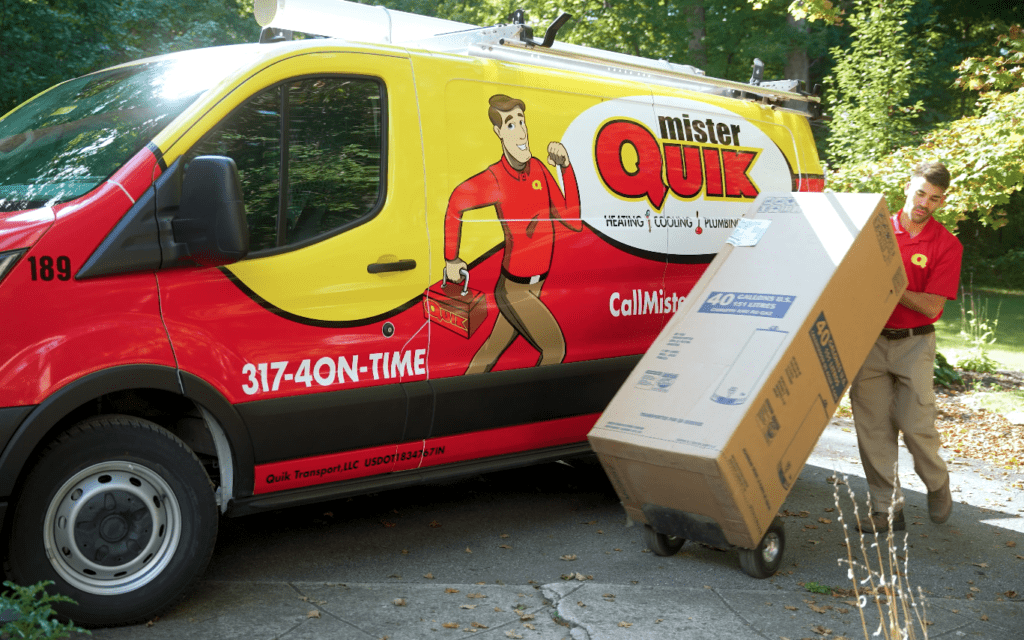Call now! we're here 24/7
We are here when you need us!
Top 4 Reasons Why Your Water Heater
isn't working:
No Power to the Heater: Just like your TV or lamp, if there’s no power, it won’t work. Check if the water heater is plugged in and that the circuit breaker for the heater is turned on.
Pilot Light Problems (for Gas Heaters): Gas water heaters have a little flame called a pilot light. If it’s out, the heater won’t make hot water. We don’t recommend our customers do this themselves. Please call a local plumber for help.
Sediment Buildup: Over time, little bits of stuff can collect at the bottom of the heater. This “sediment” can mess with the heating element and make your water heater less efficient. You may need to drain and flush the tank to clear it out.
Heating Element Issues (for Electric Heaters): Electric water heaters have heating elements inside. If these elements are broken or not working, the water won’t get hot. We recommend calling a local plumber to address this water heater repair.
Why is my water heater making strange noises?
- Sediment Buildup: Imagine your water heater as a big pot that heats water. Sometimes, tiny bits of stuff (sediment) settle at the bottom. When the heater warms up, these bits can make popping or rumbling sounds. Flushing the tank can often fix this issue.
- Expanding and Contracting Parts: As your water heater heats up and cools down, its parts can expand and contract. This can create creaking or ticking sounds. It’s usually normal, but if the noises are loud or sudden, it’s a good idea to have it checked by one of our plumbers.
- Water Hammer: When water suddenly stops or changes direction, it can create a thumping sound, like a hammer. This can happen when a valve closes quickly. Adjusting water pressure might help reduce this noise.
- Loose Heating Element (for Electric Heaters): Inside electric water heaters, there are heating elements. If one is loose, it can vibrate and create a humming or buzzing noise. Tightening or replacing the heating element may be needed.
- Boiling Water: In some cases, when water gets too hot, it can make a bubbling or boiling sound inside the tank. This might indicate a thermostat issue, and adjusting the temperature settings could solve the problem.
How do I drain and flush my water heater?
We always recommend contacting one of our licensed plumbers for help when it comes to draining and flushing your hot water heater. We generally follow these basic steps in our water heater flush service.
Turn Off the Heater: Before doing anything, turn off the power supply to the water heater. For electric heaters, switch off the breaker; for gas heaters, set the thermostat to the “pilot” setting.
Give it Time to Cool: Hot water can burn! Let the water inside the heater cool down for a few hours before you start.
Shut Off the Water Supply: Locate the cold water inlet valve near the top of the heater and turn it off. This prevents new water from entering while you’re flushing.
Attach a Hose: Connect a garden hose to the drain valve at the bottom of the heater. Make sure the other end of the hose is in a safe place for water to flow out.
Open the Drain Valve: Turn the drain valve counterclockwise to open it. This allows the water to flow out of the tank. Be careful—it might be hot!
Flush the Sediment: Let the water run until it’s clear. You’re not only draining the water but also getting rid of sediment that might have settled at the bottom.
Close the Drain Valve: Once the water is clear and sediment-free, close the drain valve by turning it clockwise.
Turn On the Water Supply: Open the cold water inlet valve to let fresh water into the tank. This helps flush out any remaining debris.
Bleed the Air: Open a hot water faucet in your house to let any trapped air escape from the tank. Once water flows consistently, close the faucet.
Turn On the Heater: Finally, turn the power back on. For gas heaters, set the thermostat to your desired temperature. For electric heaters, switch on the breaker.
For more information on how to keep your water heater in tip-top shape, click HERE for a list of videos we’ve made. These will help educate you on how to maintain your water heater but also teach you when you need a plumber’s help.
What size water heater do I need for my home?
Figuring out the right size for your water heater depends on a few things. Think about how many people live in your house and how much hot water you use. If you have a big family or use a lot of hot water, you’ll need a larger water heater. On the other hand, if it’s just you or a small family, a smaller one should do the job.
To get more specific, water heaters are measured in gallons. For a family of four, a 40-50 gallon water heater is usually enough. But if you have a bigger household, you might want to go for a 50-80 gallon one.
It’s important to find the right balance. Too small, and you might run out of hot water when you need it. Too big, and you’re wasting energy heating more water than you actually use. If you’re not sure, it’s a good idea to ask a professional—they can help you pick the perfect size for your home.







